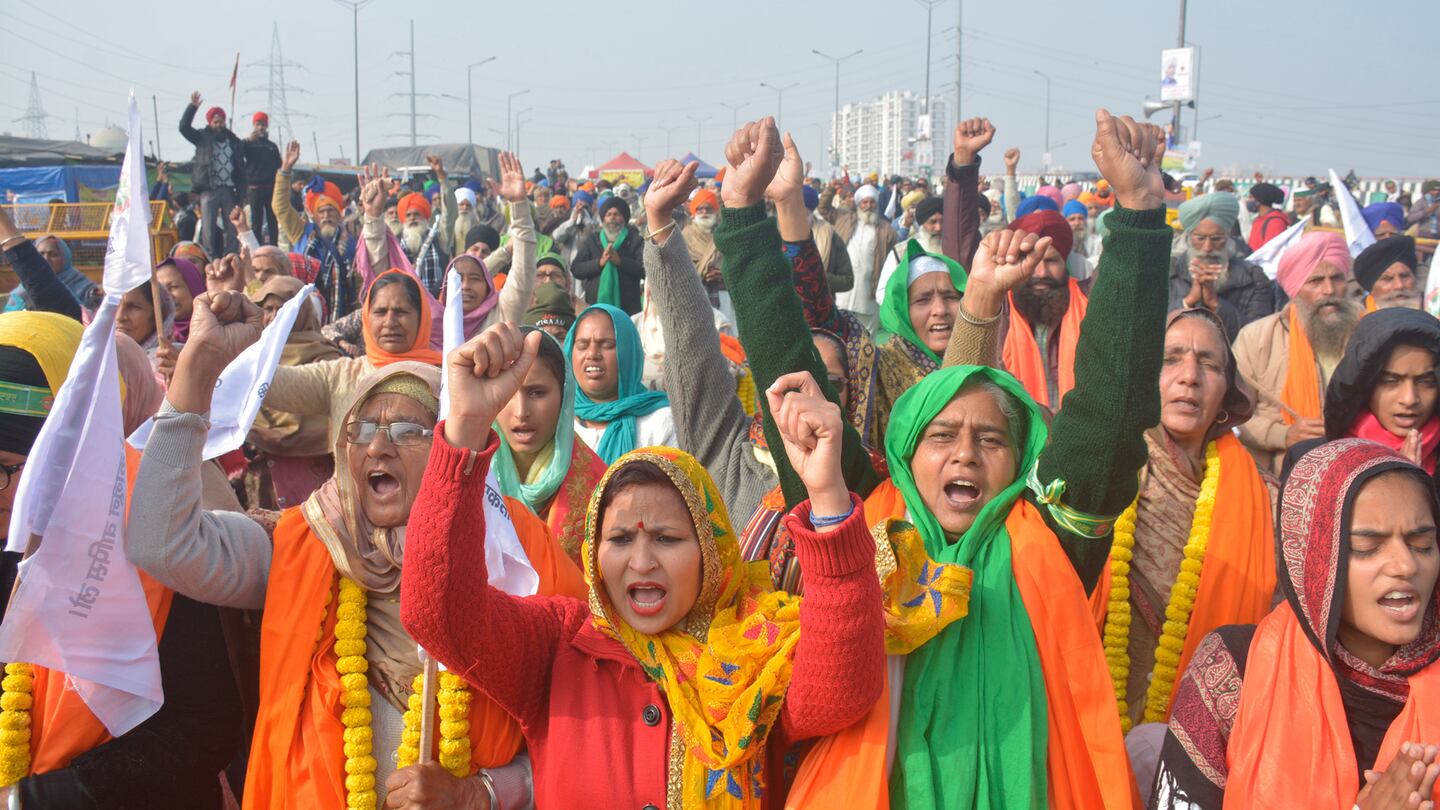
The Business of Fashion
Agenda-setting intelligence, analysis and advice for the global fashion community.

Agenda-setting intelligence, analysis and advice for the global fashion community.

By volume, India is one of the world’s leaders in textiles production. But cheap trend-based retailers have driven down prices at their suppliers, depriving cotton farmers further down the supply chain of stable livelihoods. Now, those same farmers are protesting three new contentious agricultural laws that will impact over 25 percent of the world’s cotton production this year.
The protests began in late November, when some 250 million laborers across India went on strike. Last week, the proposed legislation was put on hold as farmers were beckoned to the negotiating table, but the showdown between farmers and the government continues.
The proposed Farm Laws are part of Indian Prime Minister Narendra Modi’s “deregulation” agenda to remove red tape and drive market efficiencies. They include removing government-set floor pricing (known as the Minimum Support Price) for crops. But farmers fear the removal of guaranteed prices will result in lower returns, driving them to impoverishment and forcing them to sell their land to the large corporations that dominate India’s retail economy and would effectively set the new price for crops.
In some ways, the power dynamic between protesting Indian farmers and the politicians who represent Indian corporate interests mirrors the standoffs between garment workers and apparel brands.
ADVERTISEMENT
“Retailers colonize us due to cheap labor, exploit our youth, and disrespect the dignity of workers, especially women and girls,” said Nazma Akter, executive director of the Awaj Foundation in Bangladesh, who has been protesting nonpayment of committed orders by international brands during the pandemic. “It was countries that used to colonise us, now it’s large corporations.”
India’s farmers are demanding “fair prices,” just as garment workers demonstrate for “fair wages.” And their plight and clash with the government could taint fashion brands whose supply chains are exposed.
Sadly, cotton farming in India has become a fashion tragedy. Once the jewel in her export crown, from the Middle Ages to the early 19th century, India was the center of Asian textile innovation, offering the world’s finest cloth and exporting to the royalty of Asia, Africa and Europe. Now, Indian cotton farmers are committing suicide at an alarming rate, often due to financial pressures.
My own family in Punjab in northern India has been impacted by this suicide epidemic. It’s a tragic situation. First, social media-fuelled fast fashion drives demand for cotton. Then, farmers, experiencing a new surge in demand for their crop, are forced to resort to genetically modified seeds engineered by monopolistic agrochemical giants, which engage in price gouging.
As a result, farmers quickly accrue crippling debt while suffering poor health as heavy fertilisers poison local water supplies. Layer on climate change — which removes predictability from farming and can seriously damage crops — and you have a perfect storm for a humanitarian crisis that could easily taint major brands in the same way that forced labor in China’s cotton fields has tainted brands from Nike to Zara.
Thus far, no large fashion corporation has spoken up in support of India’s farmers.
Rishi Sher Singh, a supply chain expert based in India, believes that fashion needs to take a more enlightened approach to the issue, and fast.
“There is a growing agreement that dialogue between buyers, suppliers, indigenous communities and workers, together with greater supply chain due diligence, empathy for workers, and collaboration with government are the paths forward,” Singh said.
ADVERTISEMENT
With a new generation of consumers demanding more ethical products, the time is now for international fashion retailers to act and focus efforts on helping to establish fair prices in India’s cotton fields.
Jag Gill is an entrepreneur working at the intersection of technology, supply chains and sustainability. With additional research by Liv Simpliciano, an academic in sustainability and modern slavery.
The views expressed in Op-Ed pieces are those of the author and do not necessarily reflect the views of The Business of Fashion.
How to submit an Op-Ed: The Business of Fashion accepts opinion articles on a wide range of topics. The suggested length is 700-1000 words, but submissions of any length within reason will be considered. All submissions must be original and exclusive to BoF. Submissions may be sent to opinion@businessoffashion.com. Please include ‘Op-Ed’ in the subject line and be sure to substantiate all assertions. Given the volume of submissions we receive, we regret that we are unable to respond in the event that an article is not selected for publication.
Related Articles:
Will Self-Regulation Solve Fashion’s Sustainability Problem?
How Primark is Constantly Looking for Slavery in its Supply Chain
ADVERTISEMENT
Overconsumption and fast fashion have become easy targets for brands flexing their climate-friendly attributes. Consumers may agree with the message — but take issue with a self-righteous tone.
Traces of cotton from Xinjiang were found in nearly a fifth of samples from American and global retailers, highlighting the challenges of complying with a US law aimed at blocking imports that could be linked to forced labour in China.
The fashion industry continues to advance voluntary and unlikely solutions to its plastic problem. Only higher prices will flip the script, writes Kenneth P. Pucker.
The outerwear company is set to start selling wetsuits made in part by harvesting materials from old ones.